Current articles on bioeconomy-related topics
-
The “Rhizo-Lentil" EIP-AGRI project - 20/05/2020
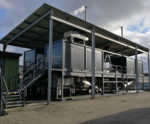
NovoCarbo GmbH produces biochar from plant residues such as wood chips, nutshells and manure. Different feedstocks, and the way these materials are processed, create biochars with different properties. This makes biochar suitable for different uses, including as a soil conditioner, in biogas plants or as bedding for stables and cowsheds. The Rhizo-Linse project is currently investigating whether biochar is also suitable as inoculant carrier for…
-
Dossier - 28/04/2020
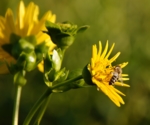
Biomass from forestry and agriculture along with residues from industry and households can contribute to our energy and raw material shift. Sustainable, regenerative biomass-based energy can become part of the energy mix of the future within the framework of a bioeconomy.
-
Urban agriculture - 23/04/2020
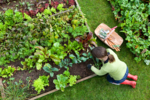
Given the challenges faced by modern agriculture, it is vital to raise people’s awareness of how to change their approach to food. The founders of the Stuttgart-based start-up company farmee GmbH see urban agriculture as the key to making this change possible. The company has developed “alphabeet”, an app designed to encourage consumers to produce their own food. After all, only those combining knowledge and practical experience can be expected…
-
Biosensors - 09/04/2020
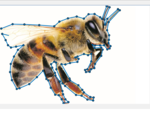
Sensor networks are one of the keys to achieving digitalisation of the bioeconomy. Sensor networks are on the way to becoming important analysis and control instruments for energy-efficient and sustainable material cycles. Dieter Hertweck, Professor of Business Information Systems at Reutlingen University of Applied Sciences, shows what is already possible in digital agriculture and waste recycling and what is feasible for the future.
-
The “Rhizo-Lentil" EIP-AGRI project - 03/03/2020

Lentils were once considered poor man’s food, but in Germany demand for them has never been greater. And to satisfy this growing demand, more lentils need to be cultivated. This is why the University of Hohenheim is involved in the EIP-AGRI "Rhizo-Linse" project. The aim of the project is to find rhizobia strains that go well with lentil plants to increase yield and improve quality.
-
Biogas and wood as components of the energy transition - 10/02/2020
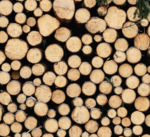
Decentralised, controllable and stable - renewable energy is an important component in the transition to a bioeconomy without fossil fuels. BIOPRO spoke to PD Dr. Andreas Lemmer from the State Institute of Agricultural Engineering and Bioenergy at the University of Hohenheim and Prof. Dr. Stefan Pelz, scientific director of the Institute for Applied Research and professorat the University of Applied Forest Sciences Rottenburg.
-
Polysecure GmbH - 16/01/2020
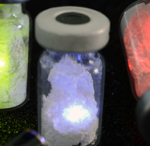
Plastics are harmful to the climate and human health both during manufacture and combustion and they also clutter our planet with garbage. Recycling is therefore a key issue, but it is not efficient. Polysecure has developed a process for permanently marking individual plastics that enables them to be separated efficiently and returned to a circular economy. This would counteract the vast amount of (micro) plastics and reduce CO₂ emissions.
-
Producing valuable new products from waste materials - 07/01/2020
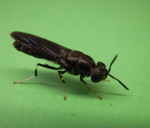
Eco-friendly and responsibly manufactured products are more in demand than ever before. Specific research is being carried out into materials and applications for a wide variety of uses. The Fraunhofer Institute for Interfacial Engineering and Biotechnology IGB is working with Hermetia Baruth GmbH on the vision of an insect biofactory that uses waste materials to produce a wide range of products such as biosurfactants, animal feed or foils.








